
Birth control. We are so lucky to live in a day and age where women have so much control over their bodies, and where women have so many different options when it comes to birth control. Claim Your 20 Free Pregnancy Tests – Click Here
There really is something for just about anyone, from the woman who wants a low dosage birth control pill to take every day, to the woman who doesn’t want to have to think about birth control for years on end.
For women who decide they might want to have a baby sooner rather than later, to women who know for sure that they are not going to want to get pregnant for quite some time.
Women have options, if they are looking for a non-hormonal method of birth control or want to take a more “natural” approach. We really have been blessed with so many different options when it comes to this type of stuff, and it’s crazy to think how far medicine and reproductive technology has come in just a few short years.
It’s even crazier to imagine where we will be in just a few short years as these techniques begin to develop, grow and change and we are presented with even more new methods of birth control.

Women use birth control to help them avoid unexpected pregnancies and to keep them from getting pregnant when they are not ready to do so. For some women, birth control use might be open ended, meaning a woman might not know how long she will be taking it when she starts.
Other women might have an end in sight, and know that they plan to start a family in a few years, say, when they finish college, or when they get a promotion at their job.
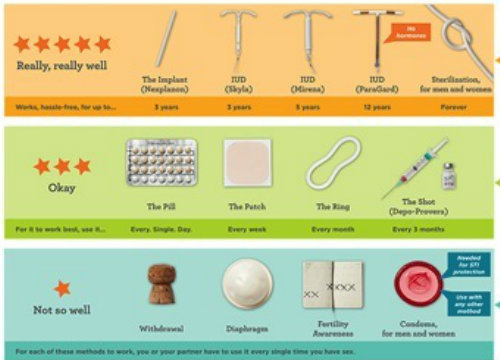
Some women know for a fact that they are not going to be ready to have a baby for quite some time, say until maybe five years or so down the road, and these women might want to opt for a long term method of birth control. Whatever the situation, it’s great to know that there are birth control options out there for everyone.
We are living in a time where there are literally options for so many sorts of situations and almost every woman will be able to find just the perfect form of birth control for her. This is great news and many women will need to try a few forms of birth control before they find just the perfect one for their situation, but this is okay too, and perfectly normal.

However, as we all know very well, life happens sometimes, and even the best laid plans can go awry. Sometimes, our plans change, and women might find themselves in a situation where they are ready to have a baby before they thought they would be.
Other women might just be getting to the point in their lives where they planned to be ready to get pregnant. This can present quite an issue sometimes, as in, what happens when you are on birth control and ready to get pregnant? The short answer would be just to “go off birth control”, right?

While that is the first step, it’s not always so easy. Sometimes, women find that they are faced with lots of different issues when trying to get pregnant after birth control, and sometimes the entire process is much different than what they anticipated.
In this article, we are going to talk about the best tips and tricks for getting pregnant after using some of the most popular forms of birth control, so women can be educated and have a better idea of what they need to do in order to have the best results.

The first birth control method that we are going to talk about is birth control pills, otherwise known as just “the pill”. Birth control pills are one of the most common and popular birth control methods available for women today. Women usually like taking birth control pills because they are easy to take.
Simply take one pill each day, usually at the same time each day, and women do not have to worry about pregnancy.
This is because the birth control pill stops ovulation from occurring, so there will be no egg present at any time during a woman’s cycle. Birth control pills are extremely small, about the size of a tic tac or a mini M&M candy, so they are easy for women to take.
Many women also like birth control pills because they are inexpensive. Usually around $30 for a one month supply if a woman does not have insurance, and many health insurance plans cover birth control pills, so women actually get the pills at no cost, or maybe a small copay.
Thanks to the ACA, or Affordable Care Act, many women are now able to get their birth control pills at little or no cost. This is great news, since in many prior years, women had to struggle with the high cost of birth control.
Some women faced frustration and fear over the rising cost of birth control for women, when men are not usually faced with the same worries. We are definitely getting to a better place when it comes to birth control and women’s health care in this country, so this is definitely a great thing.

Birth control pills work by changing the hormonal makeup of a woman’s body to stop her from ovulating regularly. Each pack of pills will contain 28 different small pills, usually numbered or labeled with the days of the week so women don’t forget to take their pill.
In these packages of pills, 21 pills, or three weeks worth, will be “active” pills that contain hormones. There will also be 7 “reminder” pills in the last week of the month. The active pills and the reminder pills are usually different colors.

The reminder pills do not contain hormones but are there to help women get in the habit of taking a pill every day each month. The reminder pills are “sugar” pills.
These sugar pills are not actually pills that contain hormones themselves, but are just simply “blank” reminder pills to take so that women can get used to taking a pill at the same time every day. Especially for younger women who are just getting started on taking birth control, it can be very confusing to get used to taking a pill every day, and things can be a little bit strange at first.
That’s why these “reminder” sugar pills were created. They are usually in a different color than the active pills and simply serve as a way to get women on the right track when it comes to taking the same pills each and every day.
The first three weeks of the month, women will take their active pills at the same time each day. (Birth control pills work best when they are taken at the same time each day.) On the last week of the month, women will take their reminder pills, the ones with no hormones.
This is the week that women will usually get their period.
Birth control pills are very good at regulating periods, since three weeks of pills contain hormones and one week of pills do not. Sometimes, young women are put on birth control pills as a means of regulating their periods even if they are not needing the pill for birth control purposes.
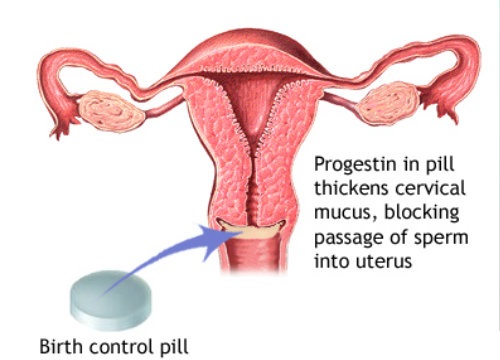
The pill is extremely effective at preventing pregnancy, especially if it is taken properly, and at the same time each day. This allows the hormones from the pill to enter the body at the right time and at the right dosage.
If a woman takes her pill consistently at the same time every day, it is over 99% effective at preventing pregnancy, which is a huge success rate!
For many women, the pill is a lifesaver and can also help with other hormonal related symptoms like irregular or heavy periods, PMS or mood related symptoms, acne, and more. The majority of the time, the birth control oral contraceptive pill has many more positive side effects than negative side effects, which is great.
It makes it a wonderful birth control option for many women, especially for younger women who might just be starting out on their trying to conceive journey, and don’t really know what to expect. Most of the time, the oral contraceptive birth control pill is a really great place to start and is a good “beginner” method of birth control.
However, many women question what happens when they are ready to conceive after taking the birth control pill. Let’s talk a bit more in depth about that side of things in the next paragraph.

For women who are taking birth control pills, but decide that they want to try to get pregnant, there is actually quite a bit of good news. Birth control pills are one of the easiest birth control methods to go off of when you want to get pregnant.
This is because the dosage of hormones that birth control pills provide is a relatively low dosage. Also, the hormones do not last that long in a woman’s body.
This is the reason that women who miss as few as one or two of their birth control pills can actually wind up getting pregnant, because the hormones just do not last that long in the body unless they are continually and consistently taken in the pill form.
While this can be really bad news for a woman who is taking the pill in order to prevent pregnancy to hear that she can get pregnant from missing as few as one or two of her birth control pills, it’s not always bad news for every woman.
This is actually a great thing for women who think that they would like to become pregnant after stopping their birth control pills. Women often worry about how long it will take them to become pregnant after stopping their birth control pills, but with oral contraceptives, there is usually no cause for worry.

In fact, in most cases, a woman’s ovulation cycles will return to normal within one to two months after stopping the use of a birth control pill. In some women’s cases, their periods might even return sooner than this.
It all depends on each woman’s particular body makeup, and how her body reacts to her birth control pills, and subsequently, the removal of her birth control pills. Some women will “bounce back” much more quickly than others, but all in all, most women find that the hormones from their birth control pills are flushed from their system rather quickly.
This is great news, although there is no “set” time frame as to when birth control will be out of a woman’s system. It’s more of a wait and see kind of thing, and there is no “one size fits all” answer when it comes to this sort of thing.
However, an important thing for women to remember is that if they had ovulation or menstrual problems before going on birth control pills, then those problems are likely to still be there after going back off of the pill as well.
The pill does not cure any sort of ovulation or menstrual issues, and instead and can just sometimes make a problem by regulating a woman’s period. However, once those regulating hormones are removed, women might find themselves back into a pattern of heavy or irregular periods, or irregular ovulation cycles if they had trouble with these things before.
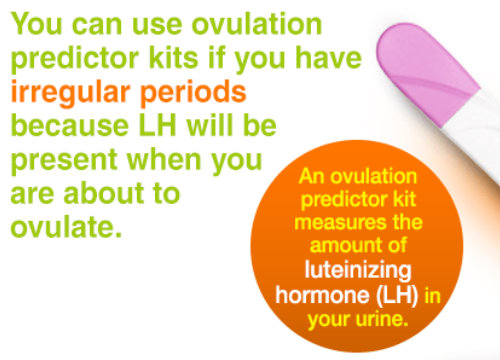
It’s really important for women to talk to their doctors before they go off of their birth control pill to determine if there are going to be any potential issues that creep back into play. A woman cannot develop the mind frame that just because they go off of their birth control pills, that everything is just going to fall into place as far as trying to conceive is going to go.
Problems with fertility don’t just disappear, and sometimes oral birth control pills can sort of mask these problems and make it much more difficult. This is an important aspect to keep in mind.
Some other important things to remember before we wrap up this section about birth control pills: the amount of time a woman has been on the pill has no direct correlation on how long it will take her to conceive after going off of the pill.
This means, a woman who has been taking birth control pills for 15 years will have the same chance of getting pregnant right after stopping her birth control pills as a woman who just went off the pill yesterday. Also, research has shown that getting pregnant immediately after stopping the birth control pill (or even WHILE on the birth control pill in some cases!) has no negative effects on an unborn baby, so don’t let that be a worry for you.
Some women do find that they get pregnant right away after going off of their birth control pill, but it is completely normal for it to take a few months for it to happen after a woman resumes her normal ovulation, and in some cases, it can take women up to one year to get pregnant after stopping the pill.
It’s so important to be patient when going off of birth control so that women do not get discouraged if things don’t work out the way they think they should at the very start. Being patient is definitely an important and key factor when it comes to getting pregnant after birth control, so women need to keep that in mind as well when they are beginning their important journey.
Women can give themselves a bit of a boost after going off of their birth control pill by starting on a daily prenatal vitamin with the recommended dosage of folic acid included.
If you have concerns or questions about getting pregnant after stopping your birth control pill, feel free to make an appointment and see your doctor to go over your concerns and make sure that you are on the right track to getting pregnant quickly and easily.
Eating right, getting plenty of sleep and exercising regularly doesn’t hurt either, as this can be a great time to try to get your body into it’s best shape so that you can conceive quickly and easily. Simply put, anything that a woman can do to try to get her body to be at it’s healthiest is going to be a great idea when it comes to trying to conceive after birth control.
Cutting out negative things like smoking, drinking, and drug use are of the utmost importance, as well as trying to steer away from stress as much as possible. Healthy foods and a healthy diet along with plenty of water will go a long way as well.

Cutting out sweets, fast foods and overall unhealthy food and dietary options will really help a woman improve her overall health which is a great thing for her fertility.
Sleep is so important as well as physical exercise to not only improve the body but soothe the spirit and the mind as well. Trying to conceive can be stressful not only on the body but on a woman’s mental health as well, so she should try to be proactive and do whatever she can possibly do in order to improve her overall health and well being.

Another pretty common and pretty popular method of birth control is the Depo Provera birth control injection, sometimes otherwise known as the birth control shot. Depo Provera, otherwise known as simply Depo, is a progestin shot that is given to women once every three months, or four times per year.
Once every three months when a woman gets her Depo shot, it will suppress her ovulation and also thicken up her cervical mucus to make it harder for her to conceive. The good news about the Depo Provera shot is that women don’t have to worry about birth control every single day as they do with the pill.
With the Depo shot, women will only have to worry about birth control four times each year, or every three months. This frees up a lot of time for many women and takes a lot of stress off of them when it comes to birth control.
Some women are just not good at having to remember to take a pill every day, and this might lead to reduced effectiveness of the birth control pill, which is of course a very bad thing. This is why it can be really helpful to have an option like the Depo Provera birth control shot that allows women to have pregnancy prevention without having to worry about birth control on a daily basis.
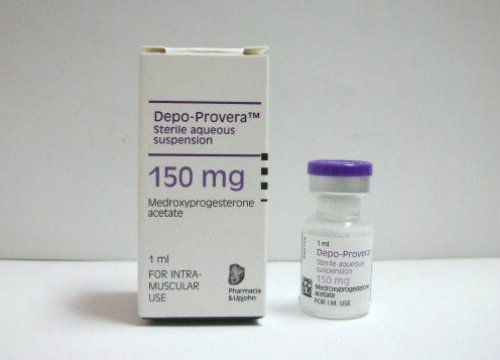
Depo Provera contains the hormone Progestin, which is the same ingredient that is found in the birth control “mini pill”. It’s a great option for women who cannot take birth control pills with estrogen in them, and it’s a great option for women who suffer from endometriosis or uterine fibroids.
The Depo Provera birth control shot is a great option for women who don’t want to have to worry about a birth control method every single day, and it can help to lessen a woman’s menstrual flow or help with painful periods. In some cases, the Depo Provera shot can also help to reduce the risk of endometrial cancers in some women.
In most women who take the Depo Provera birth control shot, periods are reduced or even stopped completely within about three months of being on the shot.
How many women would love to not only not have to worry about birth control or pregnancy, but not have to worry about their monthly period as well? There are quite a few perks that come along with the Depo Provera birth control shot which make it a good option for lots of women.

Every three months, when a woman gets their Depo Provera injection, it will give her enough of the progestin hormone to last for the full three months, until she is due for her next injection. During this time, a woman will not ovulate, and her cervical mucus will also thicken, making it much harder for her to conceive.
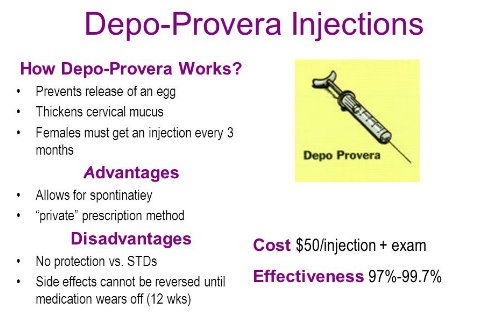
For the most part, the Depo Provera shot is extremely effective at preventing pregnancy, and is even more effective when a woman gets her shots on time without missing a shot or without too much time in between.
About 6 out of 100 women will get pregnant every year while on the Depo Provera shot, which means that it is very effective, but like all birth control methods, not perfect at all. There are very few birth control methods which can be said are 100% effective at preventing pregnancy all of the time.
However, since Depo Provera is given at a doctor’s office only four times per year, it can be much easier for the human error part to be knocked out of the equation.
However, women who don’t follow up on their appointments at the right time might actually find that they have a higher chance of getting pregnant. Following through with appointments at the right time is going to be the best bet for women who are on the Depo Provera birth control shot.
Some women have side effects from the Depo Provera shot that make it not such a good choice or option for their particular case. It’s also important to remember that Depo Provera does not protect against sexually transmitted diseases or infections.
In some studies, women who take the Depo Provera shot have actually increase a woman’s risk of some sexually transmitted diseases, although doctors are still not too clear on this connection. Also, some concerns about women who take the Depo Provera shot losing bone mineral density means that doctors recommend that women take the Depo shot for no longer than two years.
Some women experience other issues while on the Depo Provera shot as well, such as irregular bleeding, weight gain, depression, headaches, abdominal pain, bloating and fatigue.
However, the Depo Provera shot is normally very well tolerated by the women who take it, and most women do not experience any problems relating to the shot.
Women can talk with their doctor or health care provider at length before starting the birth control shot in order to make sure that they are comfortable not only with the benefits of the shot but with the potential side effects and problems relating to the shot as well.

When women who have been taking the Depo Provera birth control shot decide that they want to get pregnant, it can be a little bit difficult in some cases. This is because the Depo Provera birth control shot is much different than the birth control pills that we talked about earlier.

Where birth control pills have to be taken every single day in order to keep the right balance of hormones in the body, the Depo Provera shot does not have to be taken every day.
In fact, the Depo Provera shot only needs to be taken four times per year, so you can see that the hormones in the shot last much longer than the hormones in the pill. The shot is injected into a woman’s muscle, where the hormones stay put and are slowly released over a three month period of time.
One dosage of the Depo Provera shot provides enough hormones to prevent pregnancy for up to three months.
Therefore, if a woman goes to her doctor for her regular appointment to get her shot, and then the next week decides that she wants to get pregnant, she is already about three months out from the first possible time that she could get pregnant.
Once a woman gets the shot, there is no reversing it, and the hormones stay in the body for quite awhile. While this is a great thing for women who are looking for long term birth control methods, it can be discouraging for women who might decide that they want to get pregnant during the middle of a birth control cycle.
This is just one of the reasons that it is so important for women to do their best research and really consider all of their options before choosing the best birth control methods.
The best course of advice for women who think that they may want to become pregnant after having the Depo Provera shot? Plan ahead.

The further in advance that a woman can plan to get pregnant, the better. Women who plan ahead for when they think they might want to get pregnant can plan their birth control shots better, and can try to go off of them before the time that they want to start trying for a baby.
This can go a long way towards helping the hormones to get out of a woman’s system before she gets pregnant. As far as statistics go, about half of all women will be pregnant within ten months of stopping their Depo Provera birth control shots.
However, on average, it can take between six months and one full year for a woman’s fertility to return to normal after stopping Depo Provera. It all depends on each woman’s body and her own chemical body makeup to determine when her body will return to normal and when she will begin ovulating again.
Unfortunately, there really is no way to tell when this will be, and it is just one of those things that women will have to be patient about and wait for, there really is no hurrying it along.
Many women are concerned about Depo Provera causing infertility over the long term. However, doctors say that this is not true and that there should be no cause for concern.

Depo Provera is not linked in any studies to long term infertility or fertility problems. While it may seem pretty obvious that your fertility will return after your three month’s shot runs out, that’s not always exactly the case.
Some women have bodies that tend to “hold on” to the Depo Provera hormones more than others.
Some women will find that while their bodies recover from the Depo Provera shot, they are stuck in a purgatory between “can’t get pregnant” and “won’t prevent pregnancy”, while their bodies have so many strange levels of hormones inside.
Patience is going to be really a big key factor when it comes to going off of the Depo Provera birth control shot so women really do need to keep that in mind and know that things might take a little longer than planned or a little longer than they desire.
Depo Provera is definitely the hardest form of birth control to get out of a woman’s system, so it’s not always going to be unicorns and rainbows when it comes to this birth control method and that’s ok! All birth control methods have their ups and downs, and women just have to go over the pros and cons to determine which method is the right one for them.
The best advice for women who are getting off of the Depo Provera birth control shot in order to get pregnant is going to be patience. Patience is going to definitely be needed while women “wean themselves” off of the Depo Shot and wait for their bodies to return to normal.

In the meantime, women can start themselves on a good quality prenatal vitamin with plenty of folic acid, and make sure to reduce their stress levels as much as possible. Women can also take time to get enough exercise and eat a good quality diet, and get plenty of sleep.
While women cannot hurry their bodies along when it comes to getting pregnant after Depo Provera, they can certainly do their parts to increase their overall health and make sure that they are doing everything possible to be ready to conceive when the time does come.
Definitely women should be working on improving the parts of their overall fertility and health that they can control in order to have the best chances of improving their fertility.
Women who have been off of the Depo Provera birth control shot for a full year or more without conceiving should go ahead and make an appointment to check in with their doctor and make sure that everything looks all right.
Sometimes doctors may see an underlying problem or fertility issue that women wouldn’t otherwise know about that could be contributing to fertility problems after the Depo Provera shot.
Women who go off of the Depo Provera shot can look for their normal menstrual cycle to return, or can track their ovulation via basal body temperature or ovulation predictor kit test in order to know when their ovulation has resumed.
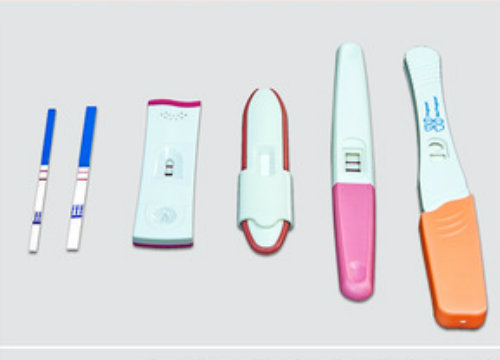
One of the most important things for women to remember, however, is that if you are going off of the Depo Provera shot in order to get pregnant, and you have a gut feeling that something may be off, never shy away from making an appointment with your doctor to discuss things.

Another form of birth control that is relatively new, but still gaining in popularity is the vaginal ring contraceptive, sometimes known as the NuvaRing. The NuvaRing is a small, flexible, ring shaped device that is inserted in the vagina.
The ring is a relatively new form of birth control, and has not been around as long as the birth control pill or the Depo Provera birth control shot. The NuvaRing provides women with an affordable, effective, and easy to use birth control method that can really be great for some women, since it is not something that women need to worry about every single day.
There are lots of reasons why the vaginal ring birth control method is growing and gaining in popularity among women today as a great new form of birth control method. Many women are extremely happy with the vaginal ring birth control method and they are really loving how easy it is to use.
Being a relatively new form of birth control, there are not many studies on “the ring”, but as of right now, people are seeming to really love it and really finding a lot of success when using this method.

Vaginal Ring birth control is very unique in the way that it works. The small, flexible ring is simply inserted into the vagina by the woman, much like using a tampon.

There is no specific method to inserting the ring or a specific placement of the ring that is better than others, just whichever position is comfortable to a particular woman. The ring is left inside the woman’s body for three full weeks, and pulled out on the third week.
During these three weeks, the NuvaRing releases hormones into a woman’s body to prevent ovulation from occurring, therefore preventing pregnancy.
As you might have noticed, this is much like using oral birth control pills, in that women have three weeks of active hormones entering the body, and then one “off” week with no hormones. This “off” week is when women will have their periods.
Many women love the vaginal birth control ring method because they don’t have to visit a doctor to have it inserted or removed, they can simply do it themselves in the privacy of their own home. This makes it a great method of birth control for women who might otherwise have been uncomfortable with birth control methods.

The great news is that getting pregnant after vaginal ring birth control is much like getting pregnant after stopping the use of oral birth control pills. The hormones are only actively going into a woman’s body while the ring is inserted, so once it is removed, so are the hormones.
It should technically only take a short period of time for the hormones to wear off and a woman’s normal ovulation cycles to return. Women who are coming off of a birth control ring should take the time to start tracking their ovulation cycles via an ovulation predictor test or basal body temperature charting.
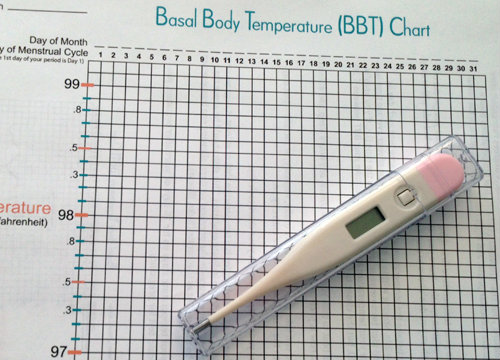
It’s super important for women to pay attention to their bodies after coming off of birth control so they know when they are ready to try to conceive. Tracking ovulation, whichever way that women think is the best for them, is going to be one of the most important parts of all of this, so make sure to keep that in mind as you go along on your journey to try to conceive.
The ring is usually a great method of birth control for women who think that they might want to get pregnant in the not-so-distant future, since the ring’s hormones are not usually prone to stick around for very long after a woman stops using the ring.
The ring’s effects are usually very mild, and it’s a birth control method that doesn’t have to be worried about every single day, which makes it a great choice for many women. The great news is that women usually have no problems getting pregnant once they decide to stop using the NuvaRing as their birth control of choice.
For women who know for sure that they won’t want to get pregnant for a longer period of time, another birth control method might be a better option in this situation.
That being said, it’s a great method of birth control for women who are unsure about their future plans regarding fertility and pregnancy, and it’s a good option for women whose fertility plans might change rather quickly.

Another relatively new contraceptive technology is called birth control implants, also known as contraceptive implants. You might have heard of the birth control implant called by it’s brand name, Nexplanon.

The birth control implant actually sounds a bit crazy when you hear about it for the first time. It’s a small, thin metal rod the size of a matchstick or something similar.
The implant is actually (guess what) implanted into a woman’s arm, where it can stay for up to four years, and continuously prevent pregnancy. It does sound a little bit crazy, almost like something from a sci-fi robot movie, but it’s the truth, and it’s happening right now!
The truth is, the birth control implant is the next big thing when it comes to birth control. It hasn’t been out for too many years, but women are really loving it so far! Let’s read on for more information about how the birth control implant actually works.

Birth control implants work in a very unique way compared to other forms of birth control. The implant, around the size of a matchstick, is inserted into a woman’s upper arm during a visit to her doctor’s office.
The implant will slowly feed progestin into a woman’s body, keeping her from ovulating, and therefore, getting pregnant. The implant can last for up to four years, but women can tell their doctor if they want to take it out before then.
The implant is up to 99% effective, since there is little to no room for error. Once it is inserted, that is the end of it, and women do not have to worry about it again.
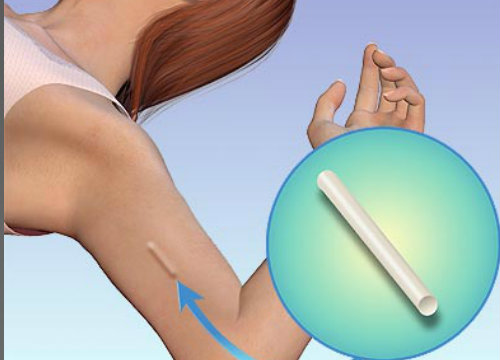
It does sound a little bit strange, but it really does work and it really works well for most of the women who decide to take it. Some even call it “the birth control of the future”. If that’s not exciting, we don’t know what is!
The implant can sometimes be a little bit pricey for women who do not have health insurance.
Doctors say that it usually ranges from between $500 to $1300 for the implant if a woman has to pay cash for it, and around $300 if they need to have the implant taken out. However, usually in most cases, the implant is covered under insurance, so women do not usually have to pay that much for it.
That is a great benefit as well, since something like this would usually cost so much money. It’s great that most insurance plans will at least pay a portion of the cost so that women can try this birth control method and find out if it is for them.
Women should definitely ask their doctor to see if their health insurance will cover some or all of the cost of the birth control implant before deciding for sure to get it.
Getting the implant itself is not usually too painful, and many women say it feels like getting a regular flu shot. The area around the injection site is numbed, and then the implant is inserted under the skin very easily.
This is usually done in a doctor’s office and doesn’t take more than just a few minutes. Most women say that getting the implant feels uncomfortable for just a few minutes, but that there isn’t really too much pain or irritation associated with getting the implant.
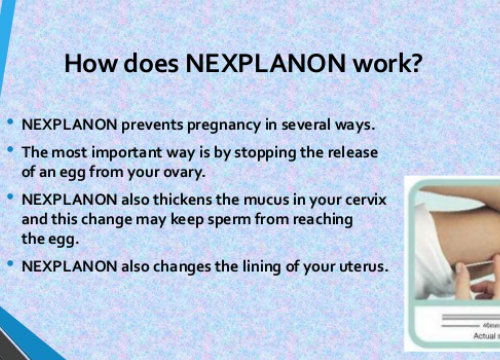
It might seem like there should actually be more pain involved, since a doctor is literally inserting a small device into your arm, but rest assured, most women say there is little to no pain involved, and any pain that is around can be easily handled with Tylenol or Motrin, or another over the counter brand of pain reliever.

Many women who start on the birth control implant plan to leave it there for quite awhile. This is because the implant is good for up to four years of birth control with no worries.
The great news is that although women’s plans can change, and they might decide that they are actually ready to get pregnant before the four years is up, the birth control implant is a really good option and can be flexible and customized for any woman.
Women can choose to have the birth control implant removed at any time during the four year cycle period, if they so choose to decide to try to get pregnant.
All it takes is a quick visit to a woman’s doctor’s office in order to have the implant removed ahead of time, so women should not shy away from getting the implant simply because they do not know how long they will want to keep it in.
Women can also choose to leave the implant in for the full time frame, until it expires.

This is also fine and many women choose to do this as well. If a woman decides that she would like to have the birth control implant removed before it expires, all she needs to do is make an appointment with her doctor.
The process is very easy, however, it might be a little bit more complicated to take the implant out than it was to put it in. It really is just a small cut in the skin to get the implant removed, and shouldn’t cause any trouble for a woman to get it removed.
However, the process of taking the implant out sometimes does take a bit longer than the process of putting the implant in.
It is also important to note that in some instances, the implant might be more difficult to remove if it has shifted since being put in place, or if it was inserted incorrectly in the first place. However, this usually only occurs in about two percent of all cases, and doctors can correct it if there is a problem with this.
Much like oral contraceptive birth control pills, the hormones in the birth control implant are not long lasting. While that might sound crazy since the implant lasts for four years, the hormones itself do not last long in the body.
In fact, women find that their cycles usually return to normal within one cycle of having their birth control implant removed. This is great news for women who are wanting to conceive after they have the birth control implant removed.
Definitely take these things into consideration if you are a woman who is considering the birth control implant for your next form of contraception. It is the “birth control of the future”, after all!

Another birth control method that many women choose to use for a form of long term birth control is in IUD, or IntraUterine Device. As you might have already guessed, an IUD is inserted into a woman’s uterus, and is used to prevent pregnancy.
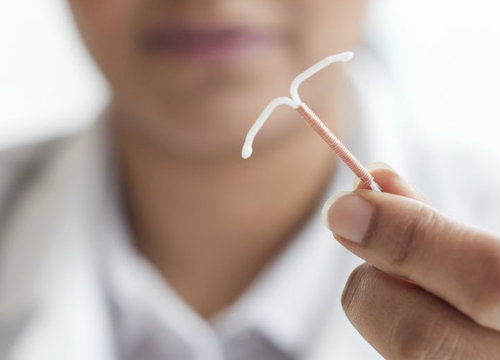
The IUD is a small, flexible, thin piece of plastic that is usually shaped like a “T”. There are several different brands of hormonal IUD’s on the market today.
The most popular brand is probably the one called Mirena, but hormonal IUD’s are sold under several different brand names such as Skyla, Kyleena and Liletta. There might even be some other “generic” brands of IUD’s available on the market, but the main thing to remember is that there are two types of IUD’s: hormonal and non hormonal.

Hormonal IUD’s work by releasing a controlled amount of progestin into a woman’s body. This progestin makes it harder for the sperm to get to the egg, because it thickens up a woman’s cervical mucus.
Also, by releasing progestin into a woman’s body, the hormonal IUD is able to stop a woman’s ovulation cycle. The effect of this is pretty simple: no ovulation, no getting pregnant.
Hormonal IUD’s are extremely effective in preventing pregnancy, partially because there is little to no room for human error in the use of them. They are inserted by a doctor, and that’s that.
In fact, hormonal IUD’s are up to 99.9% effective in preventing pregnancy, which means around 1 in 100 women will get pregnant while using this form of birth control every year. These are actually very good stats when it comes to birth control, since about 6 in every 100 women will become pregnant while taking the Depo Provera birth control shot every year.
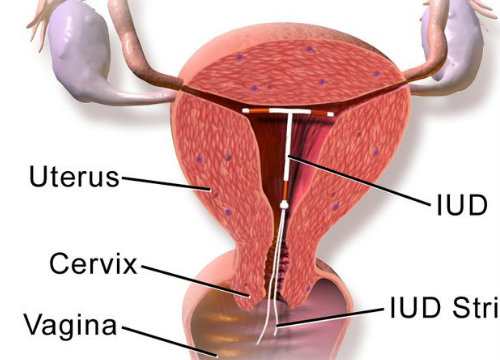
A hormonal IUD must be inserted by a doctor or nurse in a doctor’s office. They can be pretty pricey, especially for women who are not covered under health insurance.
In fact, hormonal IUD’s can run upwards of about $1300 for women who have to pay cash for them and have no insurance. The good news is that many health insurance plans these days are covering hormonal IUD’s which is really cutting down the cost and making this form of birth control accessible for many women.
Women should definitely meet up with their doctor and go over their health insurance plan to make certain what methods will be covered under their particular plan, since without insurance, and IUD can be quite pricey. Definitely check into that before going further with the procedure to keep from having to pay a humongous amount out of pocket.
The insertion process of the IUD might sound a little bit scary, but it really isn’t that bad.
If a woman has gone to the doctor for a pap smear before, she already knows pretty much what to expect during an IUD insertion. Usually there will be a short physical exam by the doctor or nurse, and a woman can expect to answer a few health and medical related questions.
After that, the IUD insertion process is much like the process of getting a pap smear done. A speculum will be used, and a special inserter tool will be used to place the IUD through the cervical opening and into a woman’s uterus.

The entire process usually takes less than ten to fifteen minutes from start to finish and is usually painless, although sometimes a bit uncomfortable for a woman.
Most doctors advise their patients to take an over the counter pain reliever such as Advil or Tylenol before coming in for their IUD insertion. Some women feel a small amount of pain and other women just describe the entire experience as uncomfortable.
Hormonal IUDS are also known to relieve menstrual cramping and make periods lighter overall, so this is an important thing to remember, although some women have spotting or bleeding for the first few months after having one inserted.
Most of the time, however, women report having no real negative side effects with an IUD. This is great because it is just one more “perk” to choosing this method of birth control.
The chance of the IUD slipping out of place after being inserted is very small, but it does happen sometimes in a small number of cases. For women who do have a problem with their IUD coming out, it is much more likely to happen during the first three months after insertion and it is also much more likely to happen during a woman’s period.
It is important for women to feel their cervix to make sure that they still feel their IUD string and that it is still in place. There will be a string much like a tampon string in the cervix after IUD insertion. This is used for a doctor or nurse to be able to remove the IUD after a woman is finished using it.
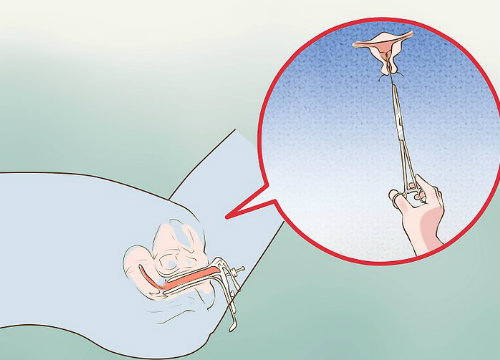
It is also very important for women to pay close attention when they on their period to make sure that their IUD doesn’t fall out. If this happens, a woman will no longer be protected against pregnancy, so this is a very important thing to note and remember.
Women should take great care, especially in the beginning stages of having an IUD and during their monthly menstrual periods to watch out to make sure that their IUD does not come out.

Mirena and other forms of hormonal IUD’s are a very long lasting form of birth control. In fact, most IUD’s last for up to four or five years in the body before they need to be removed and replaced.
However, sometimes a woman will decide on her own that she is ready to have her IUD removed before the time frame is up. This may be due to the fact that she is ready to have a baby, or she just decides that she does not want to be on this form of birth control anymore.
In this case, a woman will need to see her doctor to make an appointment to have her IUD removed. However, this process is actually quite simple as well. Even though you might not think so, removing an IUD is not a big deal at all!
If you thought that the process of having an IUD inserted was simple, the process of having an IUD removed is even easier.
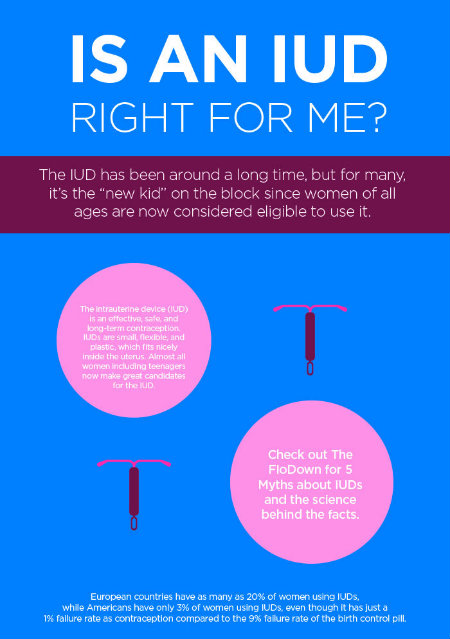
That string that we talked about earlier, that hangs down from the cervix, is what a doctor or nurse will use to gently tug and remove the IUD. This process is usually incredibly simple and takes only a few minutes.
Some women may notice some light cramping during this time, but most women say that it does not hurt at all. The entire IUD removal process is usually over and done within five minutes- easy peasy! Most women also report no negative side effects after having their IUD removed.
This makes an IUD sound even better, doesn’t it? No harmful side effects getting one inserted, and no real problems getting one taken out- sounds pretty good to me!
So, the real question? How hard is it to get pregnant after an IUD removal? The short answer? Not hard at all!
Most women are pleased to know that their bodies usually will return to normal very shortly after having their IUD device removed. This is because the IUD itself contains all of the hormones and not a woman’s body.
This is great news for women who are wanting to conceive after having their IUD removed.
Of course, it usually will take a few months time for a woman’s ovulation and menstruation cycles to return to normal after having an IUD removed, but for the most part, the process is usually quick, easy and painless. Most women find that they have no trouble trying to conceive after removing their hormonal IUD.

While we are still on the subject of IUD’s, we are also going to take into consideration and cover the non-hormonal IUD version, called a copper IUD. Copper IUDs are sold under the brand name ParaGard.
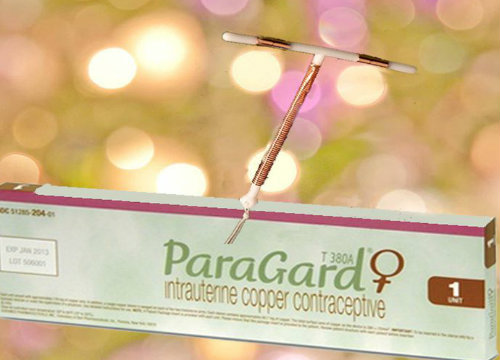
The thing that makes copper IUD’s unique is that they do not contain any hormones what so ever. This can make them a very good choice and option for women who have problems with other forms of birth control that contain hormones.
Copper IUD’s are great for women who have the risk of blood clots or other health problems if they were to take a regular hormonal IUD like Mirena. Copper IUD’s can also be used while breastfeeding, which makes them unique.
Another great and unique thing about a copper IUD like Paraguard is that it can be used as a very effective method of emergency contraception if it is inserted within five days after unprotected sex. It is actually up to 99.9% effective as a form of emergency contraception, which makes it incredibly unique.

The Paraguard copper IUD is much like the hormonal forms of IUDs, except that instead of just being the small “t” shaped piece of plastic that is inserted into the uterus, the copper IUD has (you guessed it) a small bit of copper wire coiled around the device.
This copper wire is what acts as a toxin to both sperm and eggs, which in turn is able to easily prevent pregnancy. Women with certain issues, such as those with Pelvic Inflammatory Disease, large uterine fibroids, or cervical or endometrial cancers should not use Paraguard.
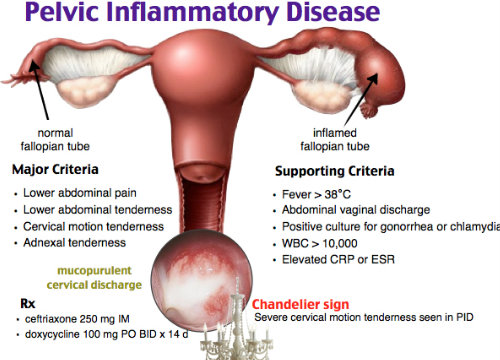
Doctors can go into more detail with their patients over who is a good candidate for a copper IUD and who is not. Some women have prior existing medical conditions that might mean that they are not a good candidate for a copper IUD, and some women’s medical history might actually indicate that a copper IUD is the best choice of birth control for them.
While hormonal IUD’s often lead to reduced cramps and bleeding for women during their periods, the effects of copper IUD’s can sometimes be the exact opposite.
Women who use Copper IUD’s are more likely to experience heavier periods and more severe cramps, which is definitely a downside of using this birth control method. Women who use the Paraguard IUD are also more likely to have an ectopic pregnancy if they do happen to get pregnant.
Getting pregnant while using Paraguard is extremely rare, but it is something that we need to discuss during this article. Some women are also at a higher risk of having the Copper IUD fall out or expel from the uterus. This is more common in women who suffer from unusually heavy periods, women who have never been pregnant before, or women who had the Paraguard IUD inserted immediately after giving birth.

As you might have already figured, the process of getting pregnant after having the copper IUD removed is much like the process of getting pregnant after having the hormonal IUD removed as well.
This is great news, since there is usually no major problems reported in women who stop using their IUD’s in order to get pregnant.
It looks like in most major studies, it took women on the copper IUD about three months to get pregnant after stopping the IUD and women on the hormonal IUD (Mirena) about four months to get pregnant after having their IUD’s removed, so the time frame is very similar.
There really is not much difference in this aspect when you compare the hormonal IUD to the copper IUD, so this is an important thing to keep in mind.
This is great news for women who are thinking about trying IUD’s as their form of birth control of choice but who might not be sure.
For women who are interested in having a baby later on down the line, these IUD’s, whether they be hormonal IUD’s like Mirena or copper IUD’s like Paraguard, can really be a great choice.
It’s important for women to weigh all of their options, of course, in order to determine which form of birth control is going to be best for them. Doctors can help women come to a conclusion about which forms of birth control are going to be best for them if they are planning to try to conceive in the future.

Now that we have covered all the basics of the most common and popular forms of birth control and what it is like to get pregnant after going off of all of these different methods of birth control, let’s go over what we have learned and keep in mind a few things that are going to be important to remember.
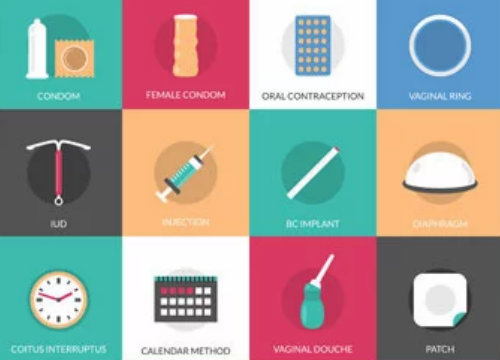
1. First of all, with most birth control methods, it doesn’t really matter how long you are on that birth control method, that time frame doesn’t really matter and doesn’t really have too much impact on the time it takes to get pregnant.
For example, a woman that has taken birth control pills for 11 years does not need to be concerned that it will take her a long period of time to get the hormones from the pills out of her system.
A woman who has taken birth control pills for 11 years has the same chances of getting pregnant in the same time frame as a woman who has taken birth control pills for 11 months or even 11 weeks.
This is great news for women who are wishing to get pregnant after birth control, and who may have been on that particular form of birth control for a long period of time.
2. As far as the different birth control methods go, it is going to be important for women to remember that most of them do not have any long term lasting effects on fertility. For example, birth control pills just have to be stopped being taken every day.
IUD’s or birth control implants simply need to be removed, and the flow of hormones that is stopping ovulation will automatically be stopped. The exception to this rule is with the Depo Provera birth control shot, which is injected into a woman’s muscle, and slowly releases the hormones over time.
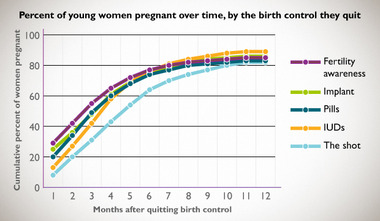
Basically, once the shot is given, there is no way to reverse it, and after the hormones have been injected into a woman’s body, they are there to stay until their effects wear off on their own.
This means that women who take the Depo Provera birth control shot might have to wait longer for their bodies to return to normal as compared to women who choose to use other birth control methods.
Where as with birth control pills, or IUDs that are easily removed, ovulation and fertility might return within two to three months, women who are on the Depo Provera birth control shot might find that it can take up to 18 months for fertility to fully return to normal.
For this reason, women who think that they might want to conceive sooner rather than later should opt for a different birth control method than the Depo Provera birth control shot in most cases.
3. The best advice for women who are currently on birth control or who are going on birth control with the intention to conceive in the future is to try their best to plan ahead.
Really sit down with your partner and try to figure out when you want to start trying to conceive. This is going to be the best bet for women when it comes to conceiving after birth control, is planning ahead.
This way women and their partners can look at what forms of birth control might be best for their particular situation and can try their best to find one that fits their needs.
Some couples decide that they need long term birth control that they don’t have to worry about for an extended period of time and some couples like the idea of an “open ended” form of birth control that they can stop as soon as they are ready.
4. For women who are thinking about birth control methods and who are thinking about finding the best possible solution to their need for birth control but their desire to try to conceive in the future, it’s also important to keep in close contact with their doctor.
By starting out with an open and honest conversation with their doctors, women can really go through their list and see what the best options would be for their particular needs, health and medical history and personal preference.
It is so important for women to really know and understand what they are putting into their bodies when it comes to birth control and how it can affect their future and trying to conceive. Keeping these things in mind will go a long way towards helping women to understand their fertility and their overall success and happiness.
Researching different birth control methods is a great idea, and sometimes women will even need to go through a few different birth control methods before they find the one that is really going to be perfect for them and their particular situation, and that’s okay too! Practice makes perfect when it comes to these things!

Birth control is usually something that women only think about when they do not want to get pregnant, but it really is important for women to consider and do their best to take birth control into consideration when they do want to get pregnant as well.
It may be pretty difficult for women to be able to see that far into the future, but it really is truly important for women to consider their future fertility when they are not in the stage of life to be ready to get pregnant and have a baby.
It can be a hard thing to balance, birth control and future fertility, and that is why women really need to work on having an open and honest conversation and relationship with their doctor and other health care providers so that they can rest assured that they are in fact making the right choices for their own particular cases.
It is great advice for any and all women to sit down with their doctor and/or health care provider before starting on any sort of birth control regimen.
This way women can be sure that they are making the right choice for their situation, and are not making any choices that might negatively affect them or impact their ability to conceive on down the road when they are actually ready to start a family.

One of the most unique and special things about women is that we sometimes have a sixth sense about things. A woman’s intuition is a very special thing and it is something that women should never ignore.

That being said, if you have gone off of your method of birth control in order to try to conceive a baby, and you feel like it has been too long with no success, don’t be afraid to go ahead and schedule an appointment with your doctor.
Doctors and experts alike advise that women under age 35 try to conceive for a full year on their own before seeking help from a fertility doctor or specialist.
For women who are over age 35, doctors recommend trying for only six months before seeking help, since women over age 35 can sometimes have a much more difficult time getting pregnant. Women over 35 should reach out to their doctor within six months just to get checked out and make sure that there are no health issues preventing them from getting pregnant.
Women should never be afraid to reach out to their doctors and discuss their fears and concerns.
There are so many different things that can affect a woman’s fertility and women should be able to talk about these things with their doctors honestly and openly. Sometimes, just going off of your birth control method may not be enough.
There may be other underlying problems and issues that women might experience that can really hurt their fertility, and these things need to be addressed and checked out as soon as possible in order to have them fixed. This can really improve a woman’s chances of getting pregnant.
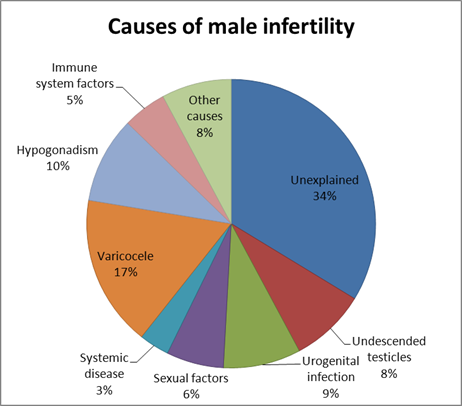
If you are a woman who is trying to conceive, and you really just feel like it has been too long, or you suspect an underlying problem, please don’t hesitate to reach out to your doctor to find out what is really going on.
A woman’s intuition is rarely wrong, so if you are having thoughts or feelings that something might be going on with your fertility, definitely make the call and go ahead and see what can be done. Sometimes, just a visit with your doctor and a little bit of talking can really help you to regain your composure and be back in the game as far as trying to conceive goes.










Comments